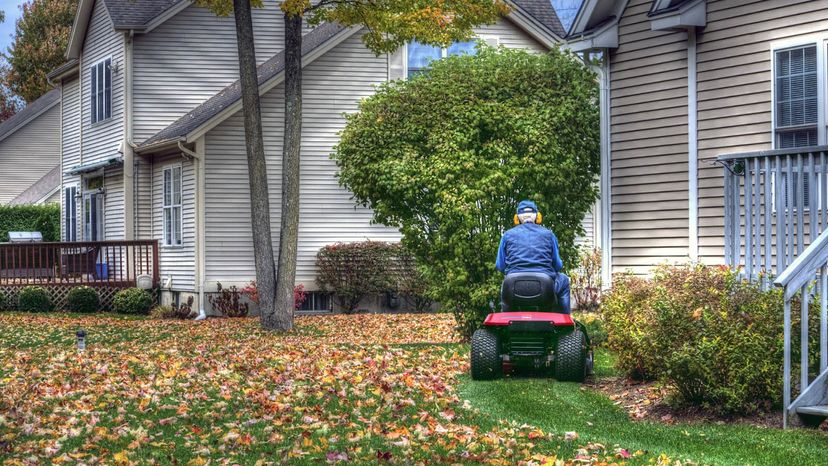 “Mulching leaves in your yard with a mulching mower is much better for the environment than raking them and sending them off to the landfill. Public Domain
“Mulching leaves in your yard with a mulching mower is much better for the environment than raking them and sending them off to the landfill. Public Domain
To a lot of folks, some of the best fall memories include raking and jumping in huge piles of leaves, before squeezing them into bags and placing them by the curb to be hauled off to the landfill. Some folks (my hand is up here) are old enough to remember when burning leaves was standard practice. These days, however, neither is looked upon with approving eyes.
Raking, bagging and hauling leaves away might make your yard look like a showplace, but it’s no longer considered environmentally friendly. Why? Well, like we said, those lawn refuse bags go to the landfill. And according to the U.S. Environmental Protection Agency, in 2015, yard trimmings accounted for 34.7 million tons (31.4 metric tons) of municipal solid waste. The majority of that — 21.3 million tons (19.3 million metric tons) — was recovered and composted or mulched in state programs, the EPA says, but 10.8 million tons (9.7 million metric tons) still went to the landfill. That’s more than 8 percent of total waste generated in 2015.
However, if you have a lawn that you want to maintain, getting rid of the fallen leaves is essential because, not only will wet leaves smother and kill the grass, they can also prevent new growth from taking hold come springtime. Also, wet leaves left on the grass will decompose and cause damage to the lawn. So what are you to do?
Rather than raking and bagging, the University of New Hampshire Cooperative Extension service suggests mowing the leaves with a mulcher instead. By mulching dry leaves, which essentially shreds them into small, dime-sized pieces, you’ve created free food for your yard. The tiny pieces of shredded leaves will filter down between the blades of grass and add vital nutrients, like nitrogen, back to the soil.
The ideal time to mulch the leaves is when you can see the blades of grass start poking through the blanket of leaves. That may mean weekly mulchings depending on the size of your yard and the number of trees. You don’t want to completely cover your lawn with a thick layer of mulch so if the leaves get too heavy, rake the extra ones into a pile and then spread them around your trees or shrubs.
In addition to adding back nutrients, mulching your garden has other benefits: It helps keep weeds at bay, holds moisture in the soil and helps moderate soil temperatures. Your lawn, trees, shrubs and the environment will thank you for mowing instead of raking the leaves.
Now That’s Interesting
Some cities and municipalities have stopped picking up bagged yard clippings, including leaves, because of cost and environmental concerns. Rather than continuing to raise taxes for garbage pickup, they’ve offered mulching workshops and called on homeowners to invest money into mulching blades for mowers so they can beautify their yards with "homegrown" mulch.


